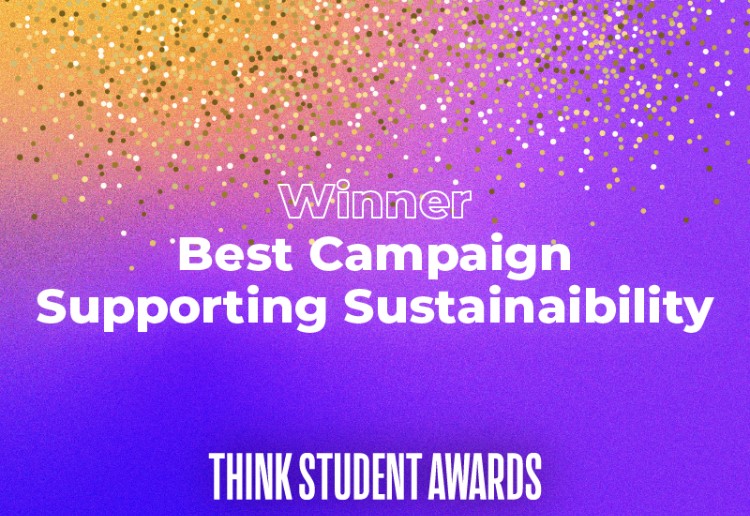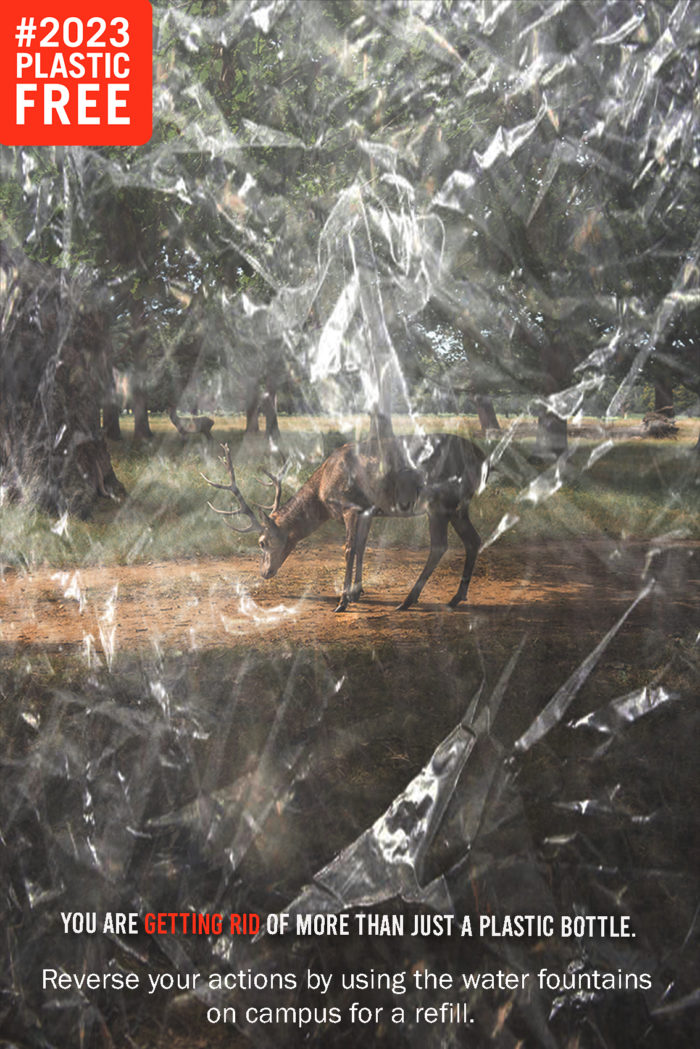The Water Bottle Brief

An understanding of sustainability issues is becoming increasingly important for any job role, not just sustainability professionals or climate scientists. That’s why it’s critical that the education students receive at Leeds prepares them to address the biggest challenges of our lifetime.
The University’s Sustainable Curriculum and the wider Curriculum Redefined programme seek to ensure that sustainability is embedded in the University’s teaching. Within these University wide initiatives there are countless opportunities for teaching staff to embed sustainability within existing modules and courses, allowing students to develop their sustainability skills within the context of their core subject.
Leeds University Business School (LUBS) spotted such an opportunity within its MA Advertising and Marketing programme - a subject which might not be the first to come to mind when thinking about sustainability. The module aims to develop students’ creative advertising skills through their understanding of audience insights and behaviour as well as creative message development and execution.
Advertising has a powerful role to play in driving behaviour change. Rather than harness this force towards promoting consumption, LUBS Staff Sustainability Architect and Advertising lecturer Sally Chan identified an opportunity to focus the brief given to students on a real world sustainability challenge close to home – the University’s 2023 Plastic Free pledge.

Seminar students were tasked with devising a poster to encourage other students to reduce their purchase of bottled water. The behaviour change being targeted by the campaign was a switch from purchasing single use plastic bottles to refilling reusable bottles using the 200+ water fountains on campus instead.
With students studying remotely throughout the module, the brief was introduced in online seminars. Students used Jamboard (a digital whiteboard) to share audience insights that would kickstart their creative ideas, facilitated by the tutor.
They then spent a week developing their creative messaging, selecting images and writing appropriate copy to construct their poster.
The final poster designs were uploaded as competition entries to Padlet where the best work was shortlisted by the Faculty's Director of Sustainability Prof Vera Trappmann, the University’s Sustainability Programme Officer Lucy Stuart, and Creative Director of local agency We Are The Allies Rick Ward.
20 of the shortlisted students were invited to a feedback session with the advertising agency via zoom, before a winner and two runner up entries were announced. The winning posters were displayed at full size within the LUBS reception in the first semester last year, as well being celebrated via social media and internally via staff newsletters.
The publicity generated surpassed expectations. Winning posters were posted, liked and shared on LinkedIn by staff and students. More than 8 months since the brief was first set, impacts are still being felt. In November 2021, the team won the Net Natives’ Think Student Awards for the Best Campaign Supporting Sustainability. The Think Student Award - the only award of its kind that is judged by students - measures real impact and the power of education to transform student lives.

The teaching initiative itself has been shared at teaching and learning conferences to inspire other Universities, and within LUBS the team are looking at introducing the brief across the Faculty. It serves to demonstrate how quickly and easily sustainability can be embedded into the curriculum, and how a bit of ingenuity, creativity, passion and support during lockdown could generate so many conversations whilst also benefitting the student community, the University and planet earth.
The Water Bottle Brief demonstrated the role that advertising can play in delivering the behavioural changes that are essential to delivering against global sustainability challenges, encouraging students to think about the role of choosing more sustainable behaviours in day to day activities.
What role could students in your subject area take in delivering against environmental and social challenges? Could you embed consideration of sustainability in the briefs students are asked to consider, the speakers invited into lectures or the examples you share within teaching?
If you're inspired by the Water Bottle Brief, and would like some guidance on achieving similar, why not speak to your department, school or faculty’s Staff Sustainability Architects or Blueprint team, or get in touch with the Sustainability service sustainability@leeds.ac.uk .

Keep up to date on the latest news
-
- Follow us on Twitter: @UoL_Sus
- Follow us on Instagram: @uol_sus
- Follow us on Facebook: @UoLSustainability
- Sign up to our Sustainability newsletter
United Nations Sustainable Development Goals
We use the United Nations Sustainable Development Goals (SDGs) as a framework to guide our activity. Our work on being active in Leeds is linked to the following SDGs:
-
-
- Goal 4: Quality Education
-
Find out more about our impact on the SDGs.
